The Laidlaw Scholars of 2017 are a varied and interesting group drawn from across UCL.
The first intake of 25 Laidlaw scholars was announced in early 2017: Laidlaw Research and Leadership Programme: first cohort of scholars chosen (22 March 2017)
The scholars tell us about their projects, and a bit about themselves.
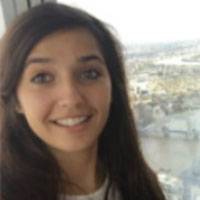 Hanna Al-Metrami
Hanna Al-Metrami

BSc Biochemistry
Summer project: Understanding the molecular basis of neurological alterations in a murine model of Mpv17 deficiency
What made you apply to become a Laidlaw Scholar?
I applied to become a Laidlaw scholar as I thought it would be a fantastic experience that would enhance my time at UCL. The research project directly reflects aspects of my degree and I thought it would be great to put into practice the techniques and skills that are routinely talked about in my lectures.
What interests you most about your chosen project?
My project looks at the root cause of many neurodegenerative diseases. I have always been intrigued by the intricate research of diseases and this project reflects that. I am excited to be part of research that is one of the first steps into providing effective therapies for those affected.
Where are you from? What local tourist or visitor attraction would you recommend and why?
I was born in Brighton and have lived there for 18 years. It is a beautiful city by the sea with many attractions, however I would definitely recommend a trip to the Royal Pavilion! Its beautiful architecture makes it stand out from the busy city centre.
If you could travel anywhere, where would you go and why?
I would love to travel to Cuba! I have always loved learning the Spanish language and Cuba has always intrigued me - so this is definitely where I am most drawn to.
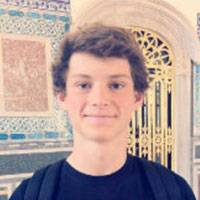 Leo Berthon
Leo Berthon

BA Linguistics
Summer project: Front Office Contracts and the Pursuit of Winning
What made you apply to become a Laidlaw Scholar?
I applied to become a Laidlaw Scholar because I am interested in research, and when one of my lecturers pointed out the project to me it seemed like a perfect fit. I was looking for a job over the summer, and working within UCL and also with 24 fellow students in the Leadership Program balanced work and fun.
What interests you most about your chosen project?
What interests me most about my chosen project is the fact that it will teach me more about how a single person - the general manager - can potentially impact the game of baseball by favouring his own interests over the team's depending on his contract length. This can then be applied not only to other sports, but also to other domains such as CEOs in major companies, or even politicians approaching the end of their terms.
Where are you from? What local tourist or visitor attraction would you recommend and why?
I was born and raised in and around Paris, but I spent all my summers in a small town in the South-West of France called Arcachon, and I also consider that place to be my home. I would recommend visiting the Bassin d'Arcachon, because, though Paris is a charming city, to me there is nothing more beautiful and tranquil than sitting on the beach in Arcachon and admiring the horizon as the sun sets over the thin strip of land separating the Bassin from the Atlantic Ocean.
What school teacher inspired you most and how?
My philosophy teacher in my final year of school started his first lesson by conceding that our grade in philosophy held very little importance to our Baccalauréat, so he was primarily concerned with helping us begin to understand the importance of philosophical wondering and developing our consciousness. This inspired me as he did not limit his lessons to helping us pass the exam, but truly went out of his way to answer questions, encourage discussions, and help us develop our intellectual curiosity. He was truly inspired by his subject, and this enthusiasm was contagious.
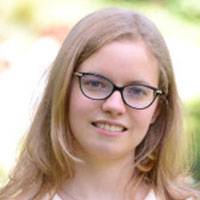 Emmanuelle Bourigault
Emmanuelle Bourigault

MSci Natural Sciences
Summer project: Studying Spacial Behaviour in Dementia
What made you apply to become a Laidlaw Scholar?
I really like the idea to take part in a group of ambitious students and to share ideas. I was also interested to contribute to a promising research project.
What interests you most about your chosen project?
I am interested in the worldwide impact of the research and the opportunity to study neurodegenerative diseases in depth as this could be one of the biggest challenge in the medical world in the next decades. I like furthermore the interdisciplinary aspect between Neuroscience and Computer Science and how could one benefit the other.
If you could travel anywhere, where would you go and why?
I would love to visit Japan as it is known for its rich and old culture. I find the Japanese art fascinating where temples and gardens have a unique architecture that makes us feel peaceful.
What skill would you most like to learn and why?
I would like to learn communication and leadership skills as these skills are very important in the working world. This could help me presenting my research work in the future, for example.
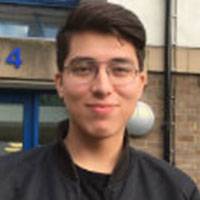 Tenzin Sung-rab Brookes
Tenzin Sung-rab Brookes

MBBS Medicine
Summer project: An Experimental Model of Human Pain Perception
What made you apply to become a Laidlaw Scholar?
The opportunity to undertake funded research as a first year undergraduate is quite a rare one. Being able to work on a research project with a team of researchers was an experience I couldn't pass up on.
What interests you most about your chosen project?
Pain is such a complex topic. Surprisingly, we still have a lot to learn about it. Through doing this research I hope the team is able to contribute a solid piece of research to the scientific community.
What skill would you most like to learn and why?
I'd love to get better at photography. At the moment, I'm not very good, but I'd like to learn how to take nicer pictures in the future.
If you could travel anywhere, where would you go and why?
I think it'd have to be Tibet, it's a really interesting place with a very distinct culture.
Hannah Buttle
BSc Economics
Summer project: Studying the Learning Journey using Student Activity and Outcome Data
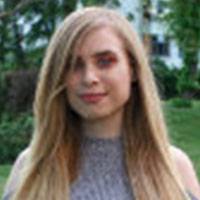 Fiona Darcy
Fiona Darcy

BSc Social Sciences
Summer project: Meanings of care work in familial and non-familial settings: revisiting men's roles with children to build capacity
What made you apply to become a Laidlaw Scholar?
I really believe in taking any opportunity that you are given and the Laidlaw Program is an opportunity to be part of a professional research team, which is rare for first year undergraduates.
What interests you most about your chosen project?
The Laidlaw project I am taking part in is titled “Meanings of care work in familial and non-familial settings: revisiting men's roles with children to build capacity” and will take place at the TCRU. I chose this because I am interested in how social research, especially research into family life, can have real world implications.
Where are you from? What local tourist or visitor attraction would you recommend and why?
I’m from Southampton, in the South of England. There aren’t a lot of tourist attractions but I would recommend going to the waterfront, and if you want a really nice view go to Portsmouth and go up the Spinnaker Tower.
What school teacher inspired you most and how?
My school had a lot of incredible and inspirational teachers. My favorite teacher was Mr Webb my religious education teacher because he always believed in his students and made every lesson engaging. He always made his lessons engaging and fun, I’ll never forget when I got “married” in a charity shop dress in a lesson about Christianity.
Viktoria Dobi
BSc Social Sciences with Quantitative Methods
Summer project: Political Speeches and the Formation of Attitudes
What made you apply to become a Laidlaw Scholar?
'm studying Social Sciences with Quantitative Methods. Research methods are an important part of my degree and I am really excited to have a chance as Laidlaw Scholar to see real research.
What interest you most about your chosen project?
The project is about how political speeches affect beliefs. For me, it is really interesting to look for a connection and find an answer how a political speech can impact political and economic beliefs.
What skill would you most like to learn and why?
Data analysis. It is getting more and more important to discover and process information; and to suggest conclusions in order to achieve a goal, for example, to help a decision-making procedure. Data analysis is also part of my degree, but a university module teaches the basics. However, I think the skill can be only learned by applying the knowledge in practice.
If you could travel anywhere, where would you go and why?
I would go to Copenhagen because I just always wanted to see the colourful houses in real life and the city's historic center.
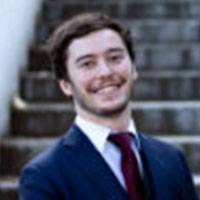 Jose Feio
Jose Feio

BASc Arts and Sciences
Summer project: Confrontation, Conciliation, Compromise: Political Culture and Strategy in the Brexit Negotiations
What made you apply to become a Laidlaw Scholar?
I believe this is an incredible and unique project, it is extremely rare for undergraduate students in any university to be able to work so closely with academics. It is the combination of this with the development of leadership skills through the leadership workshops that made me want to become a Laidlaw Scholar.
What interests you most about your chosen project?
I am incredibly passionate about the EU. The EU is an incredible unique project in human history. I am, therefore, incredibly interested by the possibility of studying one of the processes that will for sure mark the history of the EU for years to come, Brexit.
What school teacher inspired you most and how?
That would have to be my middle school history teacher, Filipe Xavier. He taught me for three years and more than history he taught us to be critical about what we saw in the world. I vividly remember our weekly debates about the most recent news and how he connected it to what we were studying. He was the first to introduce me to the concept of critical thinking and because of that I will forever be thankful to him, I would not be the same person without him.
Where are you from? What local tourist or visitor attraction would you recommend and why?
I come from a small city in Portugal called Coimbra. It has one of the oldest universities in the world, more than 700 years old. The university besides its beautiful buildings is full of traditions that the students to date keep alive. A visit to it is a must and do not forget to also listen to some Fado accompanied by a glass of Port!
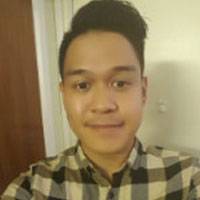 Raphael Floresca
Raphael Floresca

BASc Arts and Sciences
Summer project: Left Behing to Study - A Case Study of the Education Experiences of Filipino University Students with Migrant Parents
What made you apply to become a Laidlaw Scholar?
applied to the Laidlaw Scholarship because I've always wanted to do something that could incorporate my education here in the UK, the country in which I grew up and went to school, and the Philippines, the country in which I was born. As the scholarship could fund a self-proposed project, I took the jump and applied for it!
What interest you most about your chosen project?
I'm drawn to the topic because it's an area that hasn't been covered much before. It's a great opportunity to do something original and has the potential to be useful in many different contexts. Plus, the prospect of organising a project from scratch is quite exciting!
Where are you from? What local tourist or visitor attraction would you recommend and why?
As you've probably gathered, I'm originally from the Philippines, but I actually grew up in Yorkshire - Hull to be exact. One thing I would recommend in the Philippines is to visit Cebu - you can go scubadiving with whale sharks. In Hull, I would recommend going to a local fish and chip shop and putting 'chip spice' on your chips - apparently, it's only available in Hull.
What skill would you most like to learn and why?
I'd like to learn the piano someday. I play the guitar and produce electronic music on my laptop, so learning the piano would take my music to a whole new level.
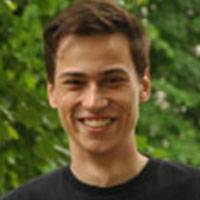 Anton Gromoczki
Anton Gromoczki

BSc Philosophy, Politics and Economics
Summer project: Confrontation, Conciliation, Compromise: Political Culture and Strategy in the Brexit Negotiations
What made you apply to become a Laidlaw Scholar?
I really liked that an important part of the programme is getting involved in research with UCL academics. Moreover, I was excited about meeting inspiring peers and developing my leadership skills. It seemed like a perfect opportunity to advance my professional and personal development here at UCL. My personal tutor also recommended applying so it was not difficult to make the decision.
What interests you most about your chosen project?
Brexit is a very complex and generation-defining process and it has challenged many common assumptions about the politics in Europe. The fact that it is still a work in progress makes the research aspect of this project very dynamic; not much is certain in advance. Also, the opportunity to interact with professional negotiators is very exciting.
Describe yourself in three adjectives.
Curious, optimistic and relaxed.
If you could travel anywhere, where would you go and why?
I think it would be great to visit Japan because it has it all: ancient and distinctive culture, modern urbanism and beautiful nature.
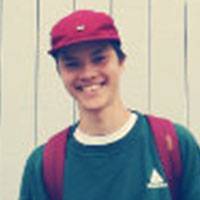 Otso Hao
Otso Hao

BSc Economics
Summer project: Studying the Learning journey using Student Activity and Outcome Data
What made you apply to become a Laidlaw Scholar?
I have often heard people say they feel university made them really good at taking exams and answering the questions posed to them. However, I feel that asking those questions yourself, and especially as social scientist identifying which of these questions we can answer, is something we do not necessarily get to practice enough within the curriculum. The Laidlaw Programme felt like a unique opportunity to develop these skills, and I did not hesitate a moment to go for it.
What interests you most about your chosen project?
Accruing knowledge as an end in itself should not be overlooked, but I think you are on to something special if you feel that the research you are doing could make a tangible contribution to the society. My chosen project takes a currently relevant policy question, university tuition fees, and tries to investigate their effects on students at the university, an aspect which has not received enough attention so far. Reading the methodology design, I was impressed by how it was at the same time simple but elegant. It made me think: “why have I not thought of this before myself”. That is always a great sign in research.
What school teacher inspired you most and how?
My high school maths teacher used to come to class and play us songs he had written on an Icelandic Horse he owned. The music was, in all honesty, not very good, and I think he himself was aware as well that many students secretly made fun of him. But he did not seem to care at all and started each semester by presenting his latest musical product, which really stuck to me. Thinking of him reminds me not to take myself too seriously all the time.
Where are you from? What local tourist or visitor attraction would you recommend and why?
I am from the capital city of Finland, Helsinki. I actually worked as a tourist guide there for a while after finishing school, and remember feeling bad for the tourists who had spent money to come there, as I didn’t really think there was anything particularly interesting to be seen there. Living in London has maybe helped me gain a new perspective on things; nowadays I would recommend Helsinki for all those who love urban culture, but at the same time appreciate calm and closeness to the nature.
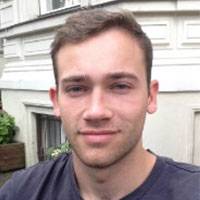 Michael Jelly
Michael Jelly

BSc Philosophy, Politics and Economics
Summer project: The Role of Political Knowledge in Perceived Control (Self-Efficacy) and Well-being (Satisfaction), and Engagement in the Democratic Process
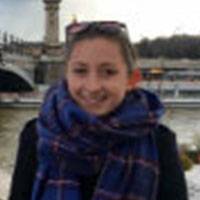 Lena Kaisinger
Lena Kaisinger

BSc Human Sciences
Summer project: Understanding the molecular basis of neurological alterations in a murine model of Mpv17 deficiency
What made you apply to become a Laidlaw Scholar?
I liked that the scholarship was providing students with the opportunity to conduct their own research under the supervision of experts in the field.
What interests you the most about your chosen project?
I am curious about the mechanisms that allow the human body to function normally. I think it is fascinating to study how these mechanisms function, what happens when they fail and to try to work out their causation and possible treatments.
If you could travel anywhere, where would you go and why?
I would love to go to the Lena River partially because I am named after it but also because of its amazing nature sights.
What skill would you most like to learn and why?
As I am a person who worries and stresses quite a lot, I would like to learn how to properly meditate in order to clear my mind.
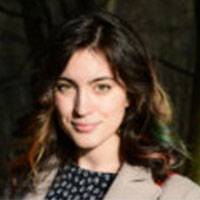 Teodora-Alexandra Lazar
Teodora-Alexandra Lazar

BA History of Art
Summer project: Innovating Cities through Dance and Technology
What made you apply to become a Laidlaw Scholar?
I like to diversify my experiences and my knowledge, so applying to be a Laidlaw Scholar was both a rational and an irrational decision at the same time. On the one hand, the project promised all the opportunities a fresher like me would hope for (leadership and research skills), but on the other hand, the possibility of actually becoming a Laidlaw Scholar seemed just a nice dream that was, after all, far from becoming true. However, managing to merge these two contradictory feelings, I decided that it is worth the try and I am glad I did.
What interests you most about your chosen project?
While choosing the project I tried to think how my past experience could be relevant to it and how the tasks I would be given would teach me new skills. But most importantly, since it is a summer project, the pleasure of doing that specific project and the excitement it would give me was an important factor to take into account. “Innovating cities through dance and technology” appeared to be the answer to that. I am interested in this project because it touches upon my belief that artistic practices can not be seen from one side only and they exist within the larger economical, cultural and even democratic context.
Where are you from? What local tourist or visitor attraction would you recommend and why?
I was born and raised in Romania, and, even though I visited most of the country, I still think Maramures, the region I lived in, is a great place to visit. It is traditional, highly authentic and surprising in every way. I recommend the cuisine, the landscapes and the hospitality of people, because in a lively place like this one, the people are very important. Being a able to see the Merry Cemetery or people dressed in traditional clothes on a regular Sunday are just a few examples. All the rest are waiting to be discovered.
What school teacher inspired you most and how?
Paradoxically, considering that I am studying History of Art, I was mostly influenced by my Mathematics teacher. I cannot say I remember most of the theoretical knowledge of the subject, but I certainly still recall the pleasure with which he was sharing stories, jokes and even advice. Without knowing, he taught me that no person is entirely characterised by what they are doing and that the good answers are not always the obvious ones. Therefore, everything deserves a closer look and nothing is ever fully understood.
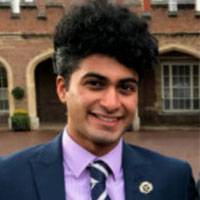 Imran Mannan
Imran Mannan

BASc Arts and Sciences
Summer project: Is it economically viable to use a renewable microgrid in large urban buildings to offset peak electricity prices?
What made you apply to become a Laidlaw Scholar?
I knew it would be a fantastic opportunity to research something that I was really curious about and that could have some real-world impact. Working alongside recognised academics and being part of a wider community of scholars sounded like an absolute bonus too.
What interests you most about your chosen project?
Microgrids could be a genuine step towards reducing a city’s emissions and an institution’s electricity bill without an incredibly expensive, complete overhaul of the city’s energy infrastructure. I’m really interested in seeing the possible implications for somewhere like a university, which often has old, inefficient buildings, or 24-hour libraries.
Describe yourself in three adjectives.
Committed, Ambitious, and Inspired.
What’s the last thing that made you laugh?
Those last three adjectives.
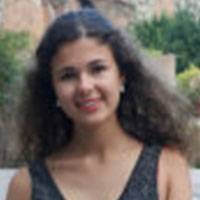 Georgina Moles
Georgina Moles

BSc Social Sciences
Summer Project: Measuring the Local Prosperity Gap in London
What made you apply to become a Laidlaw Scholar?
The experience I would gain from the process of carrying out and analysing both quantitative and qualitative data on a real life project inspired me to apply to become a Laidlaw Scholar. Moreover, the opportunity to participate in Leadership projects with academic representatives within UCL motivated me further.
What interests you most about your chosen project?
What interested me most about my chosen research project was the opportunity to gain knowledge on a subject relating to the Social Sciences whilst gaining experience with employers from both UCL and outside organizations.
What’s the last thing that made you laugh?
The last thing that made me laugh was a Facebook Meme. And, if that’s not sad enough, the meme was about a referee getting chased by a football player.
If you could travel anywhere, where would you go and why?
I’d go to South Africa. No doubt. The reason behind this is because my family lives there and I haven’t seen them in nearly eight years. Moreover, South Africa is such a beautiful country.
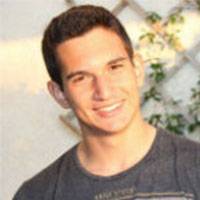 Lorenzo Molinari
Lorenzo Molinari

MEng Engineering (Biomedical)
Summer project: Brain Detectives - Experimental Research Task Design
What made you apply to become a Laidlaw Scholar?
The valuable opportunity to improve my leadership skills and work on a research project in such an early stage of my university career strongly motivated me to apply to become a Laidlaw Scholar. Additionally, it is fully funded by the generous donations of Lord Laidlaw, which makes it accessible to all the students. I knew competition would be tough, but I gave it a shot and… here I am!
What interests you most about your chosen project?
Autism is a very fascinating yet complex condition. There is still so much to uncover in this field and having the chance to make my own contribution as well as trying to improve people’s lives is extremely rewarding.
What school teacher inspired you most and how?
My Italian and Latin teacher in high school will always have a special place in my heart. I’m a quite scientific person (my degree is in Biomedical Engineering) but, nevertheless, she made me become so passionate about Latin and Italian literature. I remember her reading an amazing poem of Giovanni Pascoli entitled “X Agosto” and crying in the middle of it. It is incredible how poetry inspires feelings in a way no other medium can replicate.
Describe yourself in three adjectives.
Extrovert – I love interacting with people, engaging in intriguing conversations and speak my mind clearly!
Sensitive – I cry, I laugh, I get angry, I love. I believe there is nothing better than showing your feelings. We humans, more than any other creatures, have the privilege of being able to truly show what we are and we should exploit this.
Bibliophile – I could spend hours and hours in the library, reading some pages of that physics book to then move onto reading some pages of that Greek literature one. My dream is to get lost in a huge library.
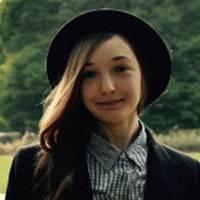 Maria Olejnik
Maria Olejnik

BA German and Spanish
Summer project: The Spanish Victory at Breda in the Eyes of Diego Velazquez and Calderon de la Barca
What made you apply to become a Laidlaw Scholar?
What made me apply was the unique opportunity to undertake research in the first year of my undergraduate degree course. Not only will it give me an idea of what postgraduate study will be like, but the experience will also make me stand out as an applicant for a Master’s or a PhD degree.
What interests you most about your chosen project?
I am going to compare two representations of an important event in the history of Spain, the battle at Breda. The painting Las lanzas and the play El sitio de Breda are no ordinary pieces of art. They are, in fact, works of the finest artists of the Spanish Golden Age, Diego de Velázquez and Pedro Calderón de la Barca. The fact that so many great minds lived in the same place, at the same time and knew each other is what I find so fascinating about the period of Spanish history that I am going to research.
What skill would you most like to learn and why?
Whist it is extremely hard to choose one skill I would like to learn the most, it would probably be to develop my presentation skills. When it comes to an interview or a written application, often letting achievements speak for themselves is not enough. What I have learned is that a person with better presentation skills is more likely to be successful in selection processes, leaving even more qualified competition behind. Fortunately, being a Laidlaw Scholar, I get the chance to work on my soft skills during the leadership weekends that are a vital part of the programme.
What school teacher inspired you the most and how?
There are two school teachers that inspired me the most – Mrs Cooke and Mr Davies who were my performing arts teachers during sixth form. Being a non-native English speaker, I thought that I could never tackle Shakespeare’s plays such as Twelfth Night or A Midsummer Night’s Dream. Mrs Cooke and Mr Davies proved me wrong. They taught me to ignore my own limitations, pushing me to reach my full potential.
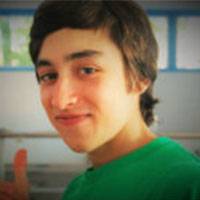 Francisco Sacadura
Francisco Sacadura

MSci Neuroscience
Summer project: An Experimental Model of Human Pain Perception
What made you apply to become a Laidlaw Scholar?
For me, the most important factor was the opportunity to carry out ground-breaking research with outstanding scientists in the best place in the world to do neuroscience. Having this amazing opportunity right in the first year when most labs are reluctant to accept inexperienced students is definitely a dream come true. And the leadership skills the Laidlaw Programme offers were the perfect complement to help me succeed in the competitive yet collaborative world of academia where team work and leadership are key.
What interests you most about your chosen project?
With my neuroscience passion and burning curiosity to understand the brain, it is hard not to start questioning about consciousness and the mind. And this is where pain comes in, pain perception is the ultimate sensation in terms of subjectivity and complexity, it is so personal and intrinsic to our self, our human experience, that we have a hard time trying to define it, so much so that we still don’t have a good way to measure it. This project is all about studying a relatively new method of inducing an illusion of pain without actually causing any harm, therefore offering the possibility of boosting pain research and helping us answer some of our grand challenges.
Where are you from? What local tourist or visitor attraction would you recommend and why?
I’m from a small town in the outskirts of Lisbon, the capital of Portugal, called Oeiras. It is a beautiful place by the sea with a very peaceful and welcoming atmosphere hard to match. Therefore, I would definitely recommend going to the numerous beaches where you will find amazing weather, amazing people, a deep tranquillity and refreshing air that will definitely recharge your batteries.
If you could travel anywhere, where would you go and why?
If I could travel anywhere, I would go to Europa, not the continent but the Jupiter moon. Why? Apart from neuroscience, my other deep passion is astrophysics and Europa is a gold mine for astrobiologists. Not only are very interesting dynamics and crazy physics happening there, for instance ice volcanos or rock tides, but perhaps more interestingly, it is one of the most promising (and nearest) places to look for alien life, which, if confirmed, would completely change the world, only seconded by the understanding of the language of the brain.
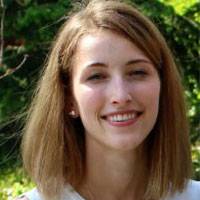 Gianna Seglias
Gianna Seglias

LLB English and German Law
Summer project: International Commitments, Accountability and the Political Control of Civil Society
What made you apply to become a Laidlaw Scholar?
I was motivated to apply because the Laidlaw programme offers the opportunity to do funded research, which can often be difficult to find as an undergraduate. I also hoped to meet like-minded first year students across a large variety of degree disciplines at UCL, and to exchange ideas about leadership and learning.
What interests you most about your chosen project?
My chosen project is unique in that it approaches legal commitments from a political science perspective and analyses them within a broader context. I am most interested to learn about how civil society organisations, an essential part of any political system, operate across a wide variety of societies, from democracies to authoritarian regimes.
Where are you from? What local tourist or visitor attraction would you recommend and why?
I am from Domat/Ems, a small town in the Swiss alps. I would recommend the climb up the nearby "Pinut" mountain, which requires a climbing harness and helmet due to the steep faces but is accessible to those without any mountaineering experience.
What school teacher inspired you most and how?
I found working with my IB English Literature teacher to be incredibly inspiring. She had given up a career as a lawyer in order to become an English teacher in her forties; I found it a useful reminder that it is never too late to pursue a different career path.
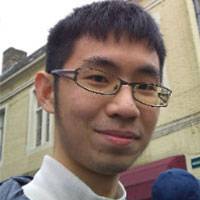 Yi Xuan Sim
Yi Xuan Sim

MEng Engineering (Mechanical)
Summer project: Mechanical Characterization of a New Material
What made you apply to become a Laidlaw Scholar?
The primary motivation for me to apply is the opportunity to conduct research using the high-tech machines that available in UCL’s labs. Besides, joining this program will also allow me to meet new people and discover common interests.
What interests you most about your chosen project?
My current project requires me to calibrate and characterize force sensors. Making these force sensors require a combination of knowledge from materials science and electronics, which I find interesting as it allows me to apply theory into practice.
Where are you from? What local tourist or visitor attraction would you recommend and why?
I come from the lovely Southeast Asian country of Malaysia. I would definitely recommend a visit to the Firefly Sanctuary at Kuala Selangor, as the scene of the fireflies lighting up at night is a sight to behold.
What’s the last thing that made you laugh?
The fact that most of my exams are held at Brixton Recreational Center. Does this mean that exams are ‘recreational activities’? Hmm…
Michael Soumrani
BSc Economics
Summer project: Documenting the Relationahip between Westminster and British Multinational Companies
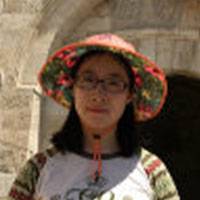 Fen Yang
Fen Yang

BA History, Politics and Economics
Summer project: Comparative Approaches to Squatting
What made you apply to become a Laidlaw Scholar?
I value the opportunity to research deeply into a subject I am passionate about and I want to learn more from established scholars.
What interests you most about your chosen project?
Squatting is an intriguing social phenomenon which can reveal the features and problems of society. Comparative study involves lots of intellectual analysis which I find challenging yet enjoyable.
If you could travel anywhere, where would you go and why?
I would like to go to the Antarctic or the Arctic. For me in the stunning scenery of the ‘tops of the world’ contains the ultimate philosophy of nature; they are uncontaminated and original and a trip to either of them will be an adventure.
If you could only keep three possessions, what would they be and why?
I would keep a book, probably a history one, an insect repellent as I hate insects and necessary clothes to keep me warm and presentable. (Hope I am not deprived of food and drink, but they are not exactly possessions).
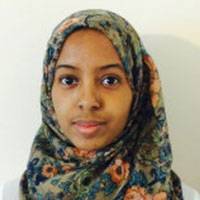 Mariam Yusuf
Mariam Yusuf

MSci Medicinal Chemistry
Summer project: Studying Spacial Behaviour in Dementia
What made you apply to become a Laidlaw Scholar?
To be immersed in research as an undergraduate is a very valuable experience, I am interested in seeing how research is applicable in the real world and how it could influence the lives of many.
What interests you most about your chosen project?
I am looking forward to collecting and analysing the data generated from the Sea Hero Quest app and seeing the different patterns displayed by people. I am also looking forward to learning more about neurological disorders and gaining a greater understanding of how this app is implemented into dementia research.
What school teacher inspired you the most and how?
My A-level chemistry teacher inspired me, he was very passionate about what he did and this was clearly brought out through his teaching. His understanding of the subject was also very admirable.
Describe yourself in three adjectives.
Enthusiastic, Inquisitive, Adventurous.
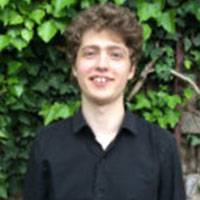 Jakub Zalesak
Jakub Zalesak

BSc Physics with Medical Physics
Summer project: Improving the Sensitivity and Functionality of Ice Penetrating Radars
What interests me most about my project?
I believe that the two big drivers of human advancement are the urge to know and the urge to create. My project allows me to do both, while contributing to the understanding of climate change, which affects us all. I also look forward to becoming a part of a research team which has already shown to be very enthusiastic and supporting.
What made me become a Laidlaw scholar?
Short answer? The committee liked my application! Why did I apply? I like a challenge and I wanted to learn a bit more than the standard degree offers.
If I could keep only three possessions, they would probably be...
- A knife - since it is the most useful tool
- A sleeping bag - to survive the night
- A waterproof bag - to put everything that I would gather on the way
The first things that I would then strive to get would be a paper and a pen, a toothbrush and based on location, maybe a smartphone to allow me to do things simpler.
If you could travel anywhere, where would you go and why?
Considering that my research project is concerned with antarctic radar, the proper answer would be probably Antarctica - and I would probably do so. However if it would be for a visit of a country, I would visit Iceland - I have been fascinated with the country from a very small age, from its people to its nature. Did you for example know that Iceland has deserts?
 Close
Close

